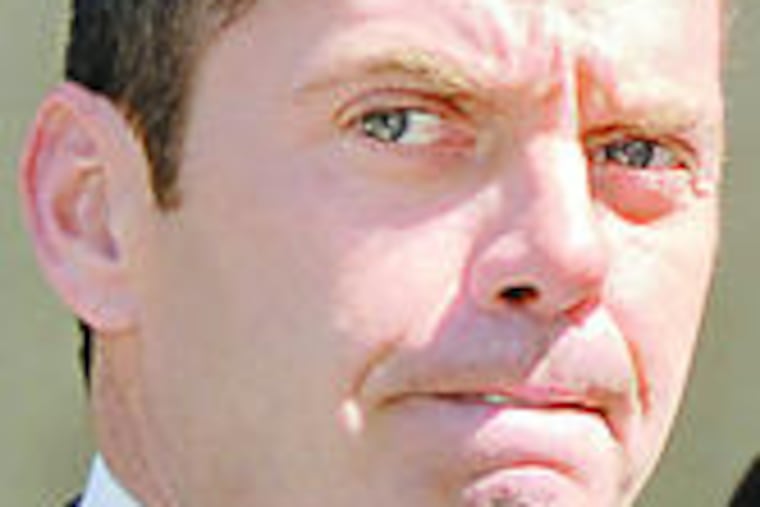Contractor gets two years for tax evasion
While acknowledging that electrical contractor Donald "Gus" Dougherty Jr. had "an undeniable" history of good deeds in his South Philadelphia neighborhood, a federal judge yesterday said his crimes of tax evasion and bribery were too severe to let him avoid jail time.

While acknowledging that electrical contractor Donald "Gus" Dougherty Jr. had "an undeniable" history of good deeds in his South Philadelphia neighborhood, a federal judge yesterday said his crimes of tax evasion and bribery were too severe to let him avoid jail time.
Before a courtroom filled with more than 100 Dougherty supporters, U.S. District Judge Gene E.K. Pratter sentenced him to two years in prison. She also ordered him to pay back taxes, plus interest, of $1.6 million.
Dougherty, 42, pleaded guilty in May to 99 criminal charges, including doing free electrical work for union chief John J. Dougherty, who is not related to him. Under federal law, a contractor who employs union workers cannot give anything of value to labor leaders.
John Dougherty, a former city Democratic Party leader and onetime candidate for state Senate, is head of Local 98 of the International Brotherhood of Electrical Workers.
Prosecutors in the case refused to discuss whether they were investigating John Dougherty for accepting free work worth $115,600 from the contractor.
In court, however, Assistant U.S. Attorney Anita Eve said the contractor's actions could "cause collateral damage" for "a union official as well."
In his plea, Gus Dougherty admitted to paying himself and his workers partly in cash to avoid taxes. By doing so, he also shortchanged Local 98, which represents his workers and covers them with health benefits and pensions.
Dougherty will have to pay $673,070 into the union's health and welfare fund.
According to federal sentencing guidelines, he could have faced a minimum sentence of 33 months. But after hearing 10 supporters testifying on Dougherty's behalf, Pratter imposed the two-year sentence.
As he left the courtroom, Dougherty, who appeared thin, pale and shaken, said, "I'm just glad this part of my life is over."
He will not have to report to prison until mid-January.
Pratter said her decision was influenced by the outpouring of support. The judge said she read 294 letters from Dougherty's relatives, neighbors, employees, colleagues and friends.
"It conjures the movie
It's a Wonderful Life
," Pratter said at the outset of the hearing.
"That's my favorite movie," Dougherty replied.
"I would hope so today," Pratter said.
Pratter heard from many of the people Dougherty had helped as an employer and neighbor.
An ex-offender said Dougherty took a chance on him by giving him a job.
A mother of four described how he raised $60,000 for her family after a deadly house fire.
A younger man who runs a neighborhood camp and after-school sports program told how Dougherty mentored him and helped get his nonprofit started.
Dougherty's twin sister, physician Katie Dougherty, said, "Society with my brother behind bars is a worse place for all of us."
But with each bit of testimony, Pratter seemed to probe more deeply into how a man so lauded by his neighbors could have so flouted the law.
Several friends cited his drinking as a source of many of his problems. Attorney Eric Sitarchuk said his client began drinking more after undergoing gastric-bypass surgery in 2002 to lose weight. Dougherty, who once weighed 325 pounds, lost at least 125 pounds and was more affected by alcohol.
When Dougherty finally stood before the judge at the end of the day, he said he knew that what he did was wrong. He said he "took the easy way out" by paying his employees in cash and skipping payments to the union health and welfare fund.
"I figured if I got caught I'd have to pay it back," he said, adding that he didn't realize the criminality of his offenses.
Pratter asked him why he felt compelled to do so much for others.
"It makes me feel good," Dougherty said. "It's like a high that gets my adrenaline going."
With the judge's encouragement at that point, he turned to the courtroom to apologize.
"I'm sorry I drug my family and friends into this," Dougherty said. "But don't cry for me. I'll get through it."
"Just start those fund-raisers for me," he said, referring to the restitution he owes.
.